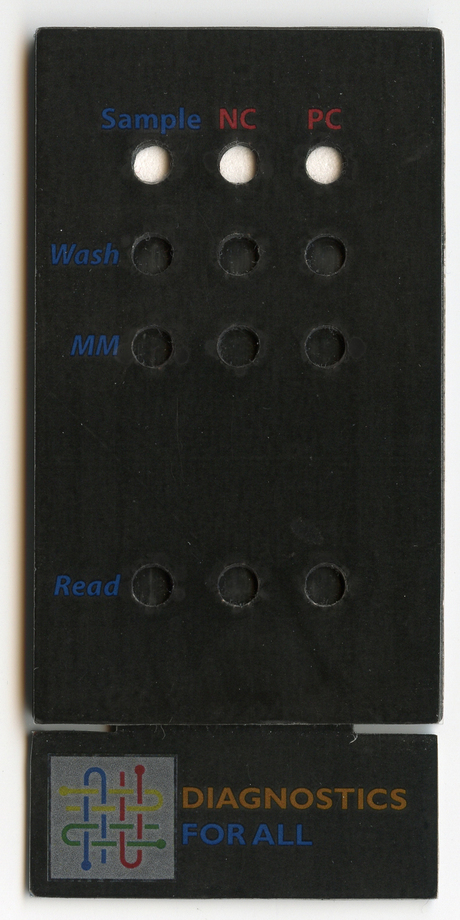A 'paper machine' for disease diagnostics

US scientists are developing a portable ‘paper machine’ that can enable detection of infectious diseases, genetic conditions and cancer for less than $2. The project is being led by Dr John T Connelly, a senior scientist at the non-profit enterprise Diagnostics For All, whose aim is to bring point-of-care diagnostics to countries where resources are limited.
Many modern diagnostic techniques involve analysing DNA in a patient’s blood sample. If pathogenic bacteria are present, the test will detect the foreign genetic material. But part of the barrier to taking this kind of technology everywhere is that it often requires multiple steps under precisely controlled temperatures to prepare a sample and analyse it. Scientists are working to simplify these procedures, but most are still not ideal for remote locations.
Writing in the American Chemical Society journal Analytical Chemistry, Dr Connelly and colleagues describe a device that “integrates sample preparation and loop-mediated isothermal amplification (LAMP) with end point detection using a hand-held UV source and camera phone”. Using materials that cost less than $2 in total, the researchers condensed sample preparation, DNA analysis and detection steps into one small machine.
“The prototype device integrates paper microfluidics (to enable fluid handling) and a multilayer structure, or a ‘paper machine’, that allows a central patterned paper strip to slide in and out of fluidic path and thus allows introduction of sample, wash buffers, amplification master mix, and detection reagents with minimal pipetting, in a hand-held, disposable device intended for point-of-care use in resource-limited environments,” the study authors wrote.
The researchers revealed that the device was able to successfully determine whether as few as five cells of E. coli were present in test samples of human plasma. They added that they are further refining the machine to make it even simpler to use.
Colon cancer DNA in blood can guide chemo decisions
A simple blood test could change how doctors decide which patients with colon cancer need...
Non-invasive blood test helps rule out oesophageal cancer
Designed and developed in Australia, the PromarkerEso test is designed to offer a quick,...
Taste-based flu test enables rapid diagnosis
The diagnostic tool consists of the sensor molecule thymol and a virus-specific sugar building...



